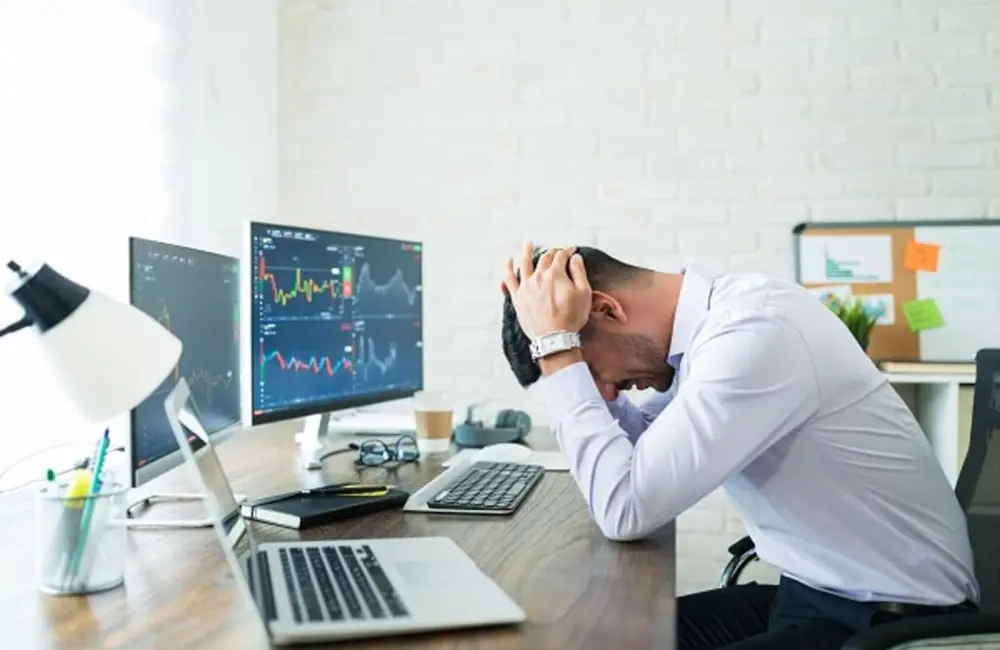We're not commuting as much. We’re not going out to restaurants as often. And the savings were hoarding have pooled up dramatically but when we spend it were spending it much more on capital goods. Look, some of the basic reasons that we have supply chain problems is the demand side is just so much bigger than it ever has been.”
Inflation is Not Transitory
“There’s going to be a lot of inflation going into 2022 with this change of consumerism, and inflation is a big, a big deal. And we see it in wages too. We have the highest quit rate in the history of the United States that we have ever had, which is the a tremendous testimony to the confidence of the worker. People…leave because they believe they could find something better and easier. That alone is now creating further wage inflation. So the answer is going to be: Are we going to get more wage inflation, or more core inflation? That’s going to be a major political problem.”
There is Such a Thing as ‘Sustainability Inflation’
“We are strong believers in the world being accelerated and being decarbonised. But without appropriate government policies to help us navigate the demand side of energy as much as the supply side, we are going to have big imbalances. That’s what we saw last late year, where there was just immense pressure and supply mitigation of hydrocarbons, without any sort of demand negation. I think this is going to be with us a while. I’d almost call it sustainability inflation. The backdrop is one that is going to lead to different behaviour by central banks in 2022 most notably the Fed.”
Bumper Returns Are Not Coming for Equity Investors
“The S&P last year was up 27%. It would be really difficult for me to witness those type of outcomes [again].
Some valuations are extreme, for sure. And there’s so much momentum in equity markets. Our clients are making mouth-watering allocations to the privates be it private debt, private equity, or real estate. So we’re seeing real change in investor behaviour around the world. But it should instill less fear of galloping inflation. That’s why I’m not afraid of equities.” I believe the case for owning equities in 2022 is very strong. I’m also an absolute believer that you can find opportunity in fixed income even in a world of rising rates. So I’m not that worried about global capital markets. There’s an enormous pool of money sitting on the side-lines. That’s likely the dominant question I’m being asked: ‘where should I put my money?’ not ‘how do I protect my money?’ ”
Technology Has Increased Resilience, But…
“I don’t think culture can be created remotely. You need connectivity with your team and with your organisation. You no longer have the banter, you have, or have a conversation about an economy or you have a political debate over dinner, it all goes way beyond a virtual call. We need to remember human connectivity is the fundamental of so much of the culture of organisation. I really do believe that culture is the number one difference between a bad company and a good company, or a good company and a great company.”
And Loneliness Is Real Young People Are Struggling …
“I have sympathy for the young people who came in with our organisations and didn’t spend a great deal of time in the office. I don’t know how they’re going to expand from their vertical. When you are pushing people side to side in organisations … virtually and independently it is very difficult to transport them, on planes, out to the field… bringing back the essence of an organisation in person is going to be critical. So much evidence that mental health issues are growing, loneliness is growing, but everything is going well as shown by corporate profits. And yet, that doesn’t mean it’s perfect, it doesn’t mean it’s sustainable. It indicates we’re resilient, and I don’t believe this is permanent.”
You Should Not Have to Call the Environmental Police in the Private Sector
“The challenge around climate and climate risk is going to be the greatest change in capital markets. Meanwhile politicians have two, four, six-year terms to an often-proper policy and by the way we are talking about 20-30 years. That is the imbalance we are confronted with. Governments are doing the best they can, but they’re now asking more from the private sector, because they can’t deliver as much as they would like to at this time. The risk is we cannot be the environmental police on behalf of governments and so there is a balance there.” We're all going to have to be savvy when it comes to managing our investments, and certain sectors that are going to be left behind unless they're adapting. I think the challenge of discovering those new technologies to quickly establish a decarbonised world is going to be exciting and it’s going to reap enormous profits for those who identify those firms and technologies.”
We Should Decarbonise Slowly
“At this moment, we do not have adequate technology to decarbonise married within equity. I mean, if we wanted to decarbonise it tomorrow, we would probably be able to do it, but we would end up with hyperinflation, we would end up with more inequalities. We need to move through all of these different granular shades as we migrate to green, and we’re going to create, and find, those technologies to expedite this pathway.” But we don’t manage all the money we manage. It’s our role to guide and educate our clients – how should they be thinking about decarbonisation in a world that needs hydrocarbons, and how do you manage that transition?”
Hydrocarbon Companies WILL Become Leaders
“Some of the best meetings I had in 2021 were with hydrocarbons companies. They’re going to be the leader in that transition, and we’re going to have some nascent new companies that are going to become a leader as well.” Just similar to what we might be witnessing in EV, you had Tesla as you know the innovator but over the years you had GM, you had Ford, you had Volkswagen, you had Toyota doing an aggressive pull-through and establishment of this pathway.”
Stakeholder Capitalism Is Not Political
“There is no question in our evidence of research that those companies that … focus most on their stakeholders have more resilient, more durable long-term profitability. And listen, let me say to everyone, stakeholder capitalism is not political. What a company has to offer is about stakeholder capitalism. It is a culture of an organisation moving forward and building connectivity with their clients, their employees and their communities, and these are the companies you want to invest in.”

























